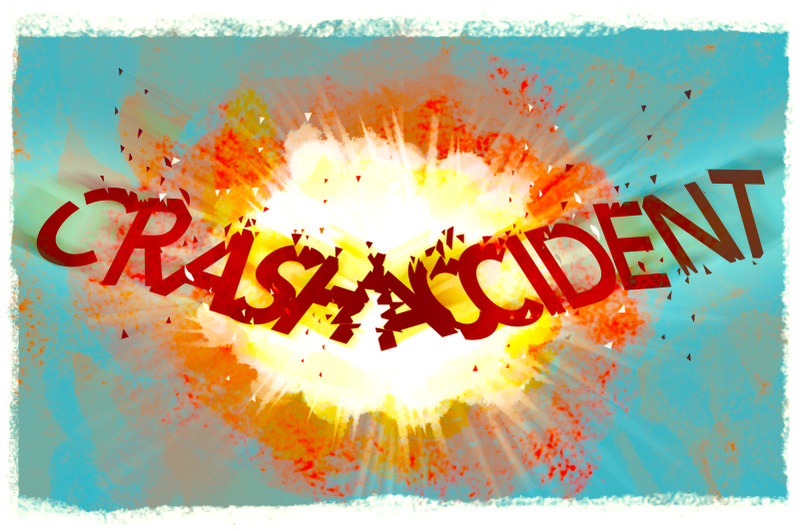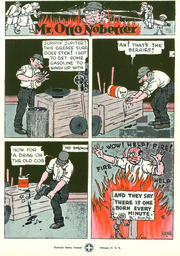Across the nation, roadway fatalities are soaring at a rate not seen in 50 years, resulting from crashes, collisions and other events caused by drivers.
Just don't call them "accidents."
That is the position of a growing number of safety advocates, including grass-roots groups, federal officials and state and local leaders. They are campaigning to change a 100-year-old mentality
that they say trivializes the single most common cause of traffic incidents: human error.
"When you use the word 'accident,' it's like, 'God made it happen,'" Mark Rosekind said at a driver safety conference this month at the Harvard School of Public Health. Rosekind is head of the National Highway Traffic Safety Administration.
"In our society," he added, "language can be everything."
Almost all wrecks stem from driver behaviors such as drinking, distractions and other risky activity. About 6 percent are caused by vehicle malfunctions, weather and other factors.
Preliminary estimates by the nonprofit National Safety Council show deadly crashes rose by nearly 8 percent in 2015 over the year before, killing about 38,000 people.
Rosekind has added his voice to a chorus of advocates who say that the persistence of crashes -- driving is the most dangerous activity for most people -- can be explained in part by widespread apathy. Changing semantics is meant to shake people, particularly policymakers, out of the implicit nobody's-fault attitude that the word "accident" conveys, they said.
On Jan. 1, the state of Nevada enacted a law, passed almost unanimously in the state Legislature, to change "accident" to "crash" in dozens of instances where the word is mentioned in state laws, like those covering police and insurance reports.
New York adopted a policy in 2014 that states the city "must no longer regard traffic crashes as mere 'accidents,'" and other cities, including San Francisco, have taken the same step. At least 28 state departments of transportation have moved away from the term "accident" when referring to roadway incidents, says Jeff Larason, director of highway safety for Massachusetts.
ARKANSAS ON BOARD
Bill Sadler, spokesman for the Arkansas State Police, says the department began preferring "crash" over "accident" in 1997. "The change was based on a fresh perspective from the National Highway Traffic Safety Administration," he told the Arkansas Democrat-Gazette. "The use of the term 'accident' permitted a mindset or inference that these events were without human influence or control. As we know, many highway crashes are the direct result of one or more drivers failing to do what is most important, maintaining safe control of the motor vehicle."
Larason, a former TV traffic reporter whose blog is Drop The A Word, led a campaign to urge The Associated Press to clarify how reporters should use "accident."
In April, AP announced a new policy. When negligence is claimed or proved in a crash, reporters should "avoid accident, which can be read by some as a term exonerating the person responsible." (The Democrat-Gazette's house style guide does not take any position on the terminology.)
But use of "accident" has its defenders, as Larason discovered in 2014 when he posted his thoughts in a Facebook group popular among traffic reporters. "Why can't human error be an accident even if the error is preventable," one person wrote. "What is being solved by having this debate? What injustice are we correcting?"
OTTO NOBETTER
"Accident" was introduced into the industrial lexicon in the early 1900s, when companies were looking to protect themselves from the costs of caring for workers injured on the job, says Peter Norton, a historian and associate professor at the University of Virginia's department of engineering.
The business community developed a cartoon character -- the foolish Otto Nobetter, who had frequent accidents that left him maimed, immolated, crushed. The character was meant to warn workers about the risks of inattention.
"Relentless safety campaigns started calling these events 'accidents,' which excused the employer of responsibility," Norton said.
When traffic deaths spiked in the 1920s, a consortium of auto-industry interests, including insurers, borrowed the word to shift the focus away from the cars, Norton said: "Automakers were very interested in blaming reckless drivers."
But over time, he said, the word has come to exonerate the driver, too, with "accident" seeming like a lightning strike, beyond anyone's control. The word accident, he added, is seen by its critics as having "normalized mass death in this country," whereas "the word 'crash' is a resurrection of the enormity of this catastrophe."
Celia Storey added information to this report.
ActiveStyle on 05/30/2016

